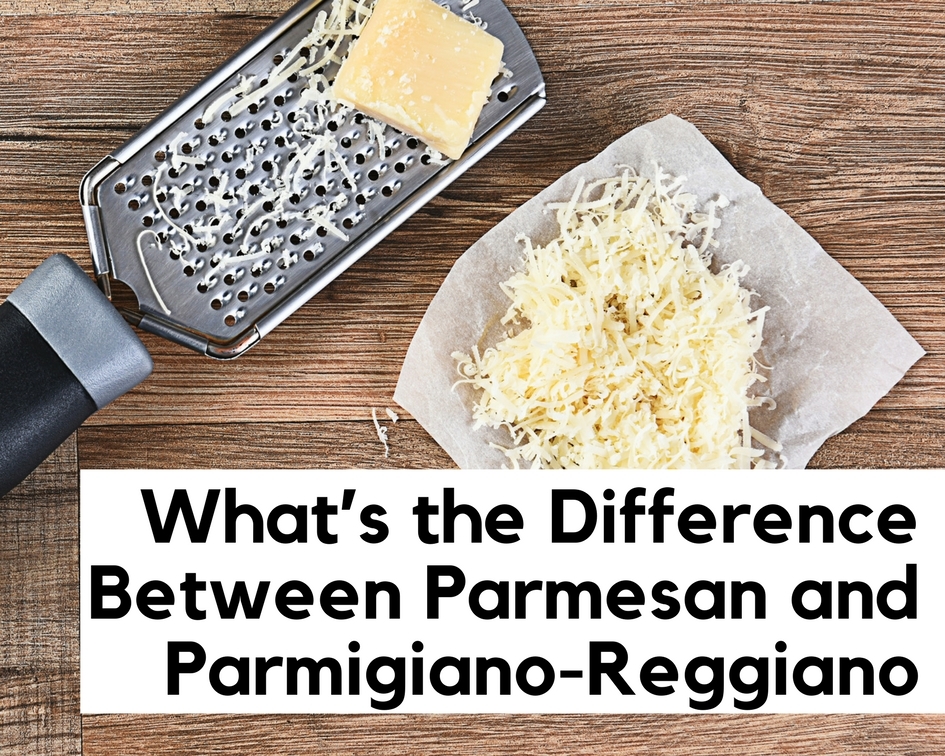Have you ever gone to the grocery store to pick up Parmigiano-Reggiano for a recipe, seen a less expensive Parmesan next to it and grab a chunk thinking they’re the same? Parmesan and Parmigiano-Reggiano are similar in name, but they’re actually two different kinds of cheese.
There is a chance you’ve never seen genuine Italian Parmigiano-Reggiano. It’s a hard, dry cow’s milk cheese, which comes in the form of a golden wheel with a pale-yellow center. It’s made from skim or part skim milk, sometimes pasteurized and sometimes not. Unlike many imitation versions in the United States, authentic Parmigiano-Reggiano from Italy has a very distinct sharp flavor.
Parmesan is an English word translated from the Italian Parmigiano-Reggiano. But unlike Italian standards, the word Parmesan is not regulated in the United States. In fact, Parmesan cheese doesn’t have to be made with whole milk. It can be made with skim milk, cream or reconstituted powdered milk.
The Italians are serious about many products, but especially their cheese. Standards for Parmigiano-Reggiano state that it must be aged at least two years, sometimes up to four years. The granular texture increases as the cheese ages.
Under Italian law, only cheese produced in specific regions (Parma, Reggio Emilia, Modena, Bologna, and Mantova) can be called Parmigiano-Reggiano. After it’s passed inspections, the wheel is stamped Parmigiano-Reggiano. Only if you see this stamp on the wheel is the authentic cheese.
Many US products are available that have a similar taste and texture to the real thing but can’t claim the same label so the cheese is marketed as Parmesan.
You could call Parmesan imitation cheese, but it’s imitation at its finest. Manufacturers have mastered their imitation art. Many of them use similar if not the same recipes brought over from Italy and handed down from many generations.
A big difference between the two is cost. Parmigiano-Reggiano is going to cost a bit more. Its flavor will really elevate the dish so it’s worth the money, but if you’re watching the bill Parmesan is an OK substitute.
But, remember there is a big difference between the highly processed powdered versions you get in the can or jar and the refrigerated versions on the shelf. Those are not 100% cheese and often contain fillers and stabilizers.
If you are looking to try out the authentic stuff, look for a wheel or half wheel of Parmigiano-Reggiano from Italy. The wheels are most likely found in specialty stores or find food grocery stores. If you can’t find the wheel, look for grated versions. Happy tasting!
